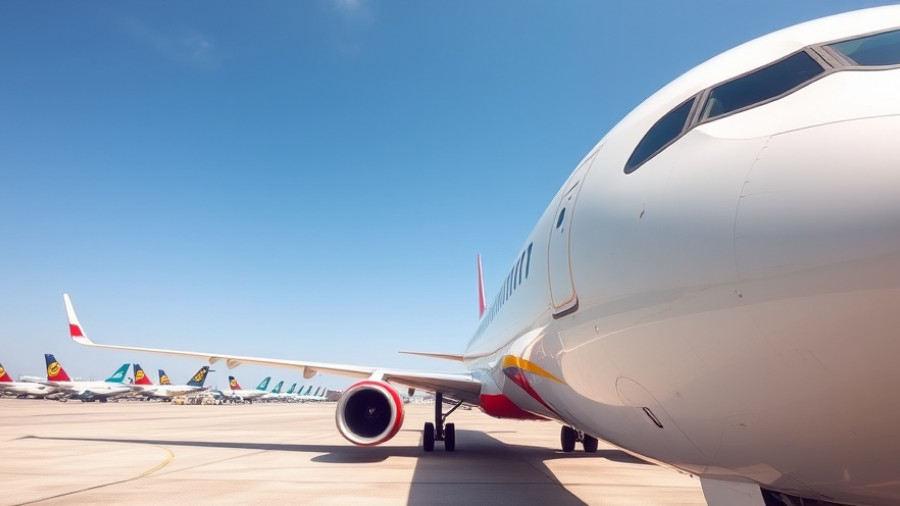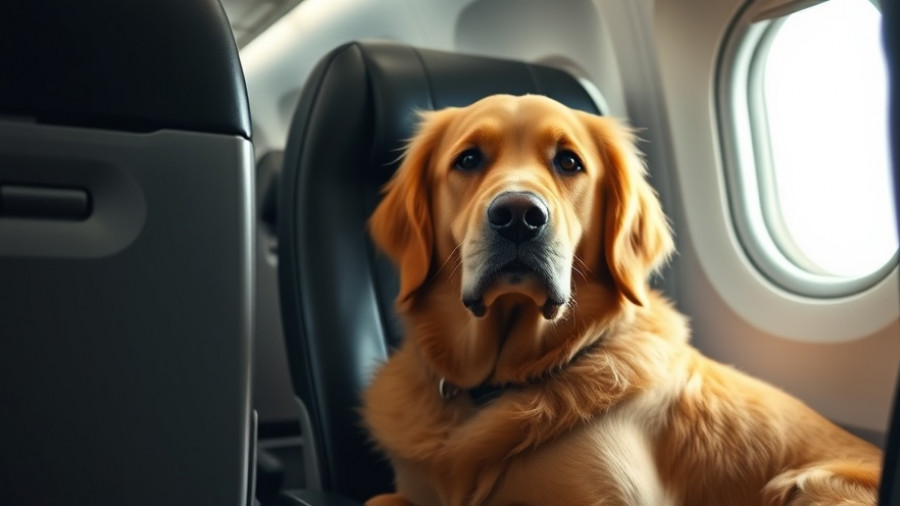
A Controversial Ruling: Pets as Baggage
In a landmark ruling, the European Union's top court has declared that pets, such as dogs, traveling in an airplane's cargo hold are considered baggage. This ruling was prompted by the unfortunate case of a dog named Mona, who went missing while being transported from Buenos Aires to Barcelona in 2019. The court's decision means that airlines are not required to offer higher compensation for lost pets, sparking significant concern among pet owners about how their furry family members are treated during air travel.
The Heartbreaking Story Behind the Case
The case centers on Grisel Ortiz, who has been searching desperately for her beloved dog, Mona. As she recounted, while the dog was being taken to the plane for its flight, it escaped and vanished in the chaos. Ortiz expressed deep emotional distress, stating, "Many people laugh because they don't understand what Mona means to me. Since she went missing, all I do is cry and stay glued to my phone, waiting for a miracle." Her longing to reunite with her pet reflects a sentiment familiar to many pet parents—our animals are not just pets; they are family members.
Legal Implications for Pet Owners
The ruling, which interprets the Montreal Convention—the international agreement governing airline liability—has set a precedent that could affect countless pet owners traveling with their animals. According to the court, unless a 'special declaration of interest' is made at check-in, which would allow for a claim of higher damages, the compensation for lost pets aligns with that of standard checked baggage. This outcome has prompted outrage from animal rights advocates and pet owners alike, who argue that animals deserve enhanced legal protection.
Comparison with Other Incidents
This ruling occurs within a wider narrative of lost pets during air travel. For example, in a different incident, a dog named Maia escaped onto a runway in Atlanta and became lost for 22 days before being found. These stories highlight a recurring theme: the challenges of transporting pets by air and the inherent risks involved.
The Need for Enhanced Regulations
Many people believe this ruling emphasizes a glaring gap in animal welfare regulations within the airline industry. While airlines have specific protocols for transporting animals, the reality remains that pets are often viewed more like luggage than living beings. Carlos Villacorta Salis, Ortiz's lawyer, criticizes the decision as a missed opportunity to advocate for the rights of animals, stating, "No airline in the world would accept a special declaration for a pet transported in a plane's hold." Furthermore, given that pets travel as cargo, it is imperative that airlines not only raise their standards of care but also rethink their damage compensation policies.
What This Means for Future Travelers
This ruling might not only have implications for compensation but also serves as a wake-up call for pet owners. Future travelers are encouraged to take precautions when flying with pets. Suggested actions include researching airline policies, exploring options for traveling with pets in the cabin (if applicable), and considering alternatives such as ground transport for longer distances. These steps can help safeguard the well-being of our pets and ease the stress of travel.
Conclusion: Advocating for Change
The resolution of this case leaves many unanswered questions about the treatment of pets during air travel. As pet owners, we must advocate for stronger protections and better policies that prioritize the safety and well-being of our furry companions. Understanding the airline's liability regarding our pets could pave the way for better practices and regulations. Let’s ensure our pets are treated as we view them—valued family members deserving respect and care.
As we come to terms with this ruling, we encourage pet owners to participate in discussions about animal welfare in air travel. Share your thoughts and experiences on social media and consider joining local or national advocacy groups focused on improving laws for the treatment of pets. For more insights into traveling with pets, stay informed and keep advocating!
 Add Row
Add Row  Add
Add 




Write A Comment